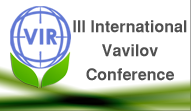What`s next? New inspection?
June 21-22, 2011 the next expert group established by the Russian Property Management Agency pursuant to the request of the Russian President Dmitry Medvedev was working at the Pavlovsk Experiment Station. It comprised representatives of the Russian Academy of Science, the Russian Academy of Agricultural Science, the Russian State Agrarian University – MSKHA named after K.A. Timiryazev, the North-Caucasian Research Institute of Mountain and Submontane Horticulture as well as staff-members of the Russian Housing Development Foundation (RZHS).
Main objectives of the commission were to evaluate (this is already for the fourth time!) the current status of plots and assess a possibility of housing construction on the territory without damaging to VIR`s PGR-collections located at the Pavlovsk Experiment Station.
In course of one day members of the commission under the “leadership” of the Russian Property Management Agency and RZHS were dwelling at the Station and came back home the following day after exchanging opinions. It`s worth to notice that all members of the commission got questionnaires developed by the Russian Property Management Agency (modern IT-technologies in action!) and were offered to answer briefly some questions (yes-no, complete-incomplete, satisfactory-unsatisfactory etc.) or to put a number in appropriate columns (number of accessions, total area m2/ha, status of the collection, quality of plant care etc.).
After receiving complete questionnaires the “leadership” of the expert group summarized the data obtained and rendered on its basis a conclusion, which was forwarded to the members of the working group - without any discussion. They also forwarded a 2-page draft report to the Russian President with their proposals - without any discussion. These are the “democratic” methods of work!
Their conclusion sounds as follows:
- The re-location of the herbal plants is possible provided that relocation technology and monitoring of the PGR-collections are properly implemented and suitable plots are selected.
- The re-location of shrubs and trees is difficult, but possible provided that the duplicate collection will be kept intact until the successful fruiting of the re-located shrubs and trees at a new place.
- The Government of the Russian Federation is developing a proposal on exclusion of lands with collections and other plantings (trees, shrubs) at plot №2 earlier conveyed to RZHS from the whole territory.
- Above mentioned proposal aimed at solving the problem was agreed by the Ministry of Economic Development with RZHS (A.A. Braverman). At the same time RZHS should be appointed responsible for allocation new plots and forwarding proposals to the State Commission on the development of housing construction subject to applicable regulations.
To our opinion the re-location of the collection offered in the conclusion is possible but only theoretically. To implement this additional financial resources, material and technical means, as well as human resources are required, which are currently absent and it`s doubtful someone is willing to pay for this for the next 10-15 years.
Authors of the report came back to the crazy idea of adjusting “a housing complex into agroecological landscape” at plot №2 like it is by many botanical gardens located in the center of the city. It`s hard to imagine a new cottage village and a field genebank with agriculture plants existing together, where agriculture activities including regular chemization of plants are being carried out.
Besides that, we shouldn`t forget about the hydrologic security of growing plants. Nearby construction of multistory-buildings shouldn`t be admitted due to the flood danger and consequent dying out of plants. Everyone well knows the so-called “modern Russian technologies” of the construction companies!
Plot №2 (71,4ha) should be fully used for scientific and technical purposes aimed at replenishment, preservation and study of the unique plant genepool of the country! This requirement is consistent with international obligations of Russia under the Convention on Biodiversity (Article 9) requiring for each country to conduct arrangements aimed at secured preservation of plant genetic resources.
While many countries such as the USA, China, Korea, Japan, most countries of Europe, Asia and Latin America are rapidly replenishing their collections of plant genetic resources to use them for economic development and creating competitive products, everything, what could have been a real proud for any of these countries, is being systematically destroyed in our country.
To preserve the current national genepool of cultivated plants and to ensure its systematic expansion involving new accessions of fruit, berry and perennial fodder crops, adaptable to specific conditions of the North-Western region, it`s necessary to allocate additional 130ha of suitable lands on the territory of the Pavlovsk Station.
Unfortunately conclusions and proposals of the "leadership" of the commission under the Ministry of Economic Development of Russia headed for unknown reasons by the Federal Property Management Agency and RZHD would satisfy in any case neither Institute nor the Russian Academy of Agriculture Science, since this problem concerns not only lands of the Pavlovsk station, but also lands of those Institutes` stations and Academy, where activities on plant genetic resources collections are being conducted.
Currently most collections of plant genetic resources preserved and managed by Russian Institutes and included into the system of the Russian Academy of Agricultural Science turned out to be vulnerable from the juridical point of view, what gives an opportunity for elite cottage construction on such lands.
When and who will finally perform an instruction of the President?
On the Draft Law
In order to form a juridical basis for managing these collections and to ensure their security from encroachments of various structures according to the order of the Russian Government issued December 8, 2010 the Ministry of the Agriculture of the Russian Federation in cooperation with the N.I. Vavilov Research institute of Plant Industry developed a Federal draft law “On plant genetic resources and on introducing amendments into certain legislative regulations of the Russian Federation”.
The draft law was forwarded three times to executive authorities and RZHS for agreement. The draft law has been already agreed by the Ministry of Regions and the Ministry of Natural Resources of Russia. The Ministry of the Economic Development, the Ministry of Finance as well as RZHS provided their comments. In order to settle all the differences regarding the draft law a number of meetings was held in the Ministry of Agriculture of Russia on the 8th of July 2011 with participation of abovementioned authorities and RZHS.
The draft law was improved subject to the obtained comments and forwarded for a new agreement.
We do not want to think that someone deliberately prevents the adoption of the law, because it dots one's i's and cross one's t's.





